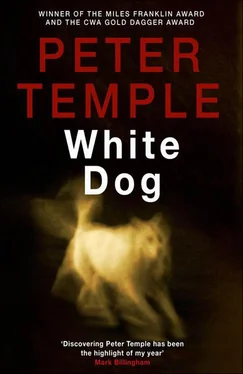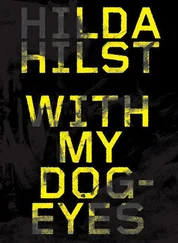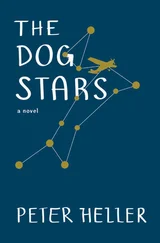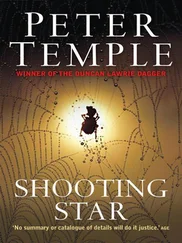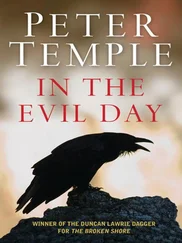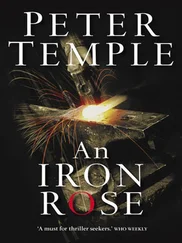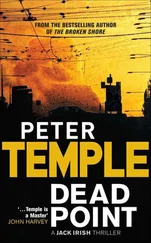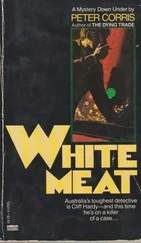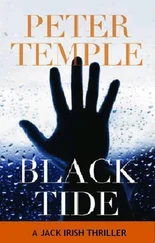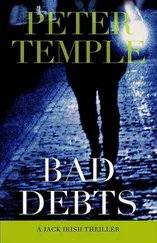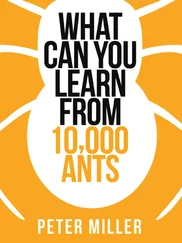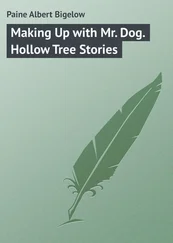Peter Temple - White Dog
Здесь есть возможность читать онлайн «Peter Temple - White Dog» весь текст электронной книги совершенно бесплатно (целиком полную версию без сокращений). В некоторых случаях можно слушать аудио, скачать через торрент в формате fb2 и присутствует краткое содержание. Жанр: Триллер, на английском языке. Описание произведения, (предисловие) а так же отзывы посетителей доступны на портале библиотеки ЛибКат.
- Название:White Dog
- Автор:
- Жанр:
- Год:неизвестен
- ISBN:нет данных
- Рейтинг книги:4 / 5. Голосов: 1
-
Избранное:Добавить в избранное
- Отзывы:
-
Ваша оценка:
- 80
- 1
- 2
- 3
- 4
- 5
White Dog: краткое содержание, описание и аннотация
Предлагаем к чтению аннотацию, описание, краткое содержание или предисловие (зависит от того, что написал сам автор книги «White Dog»). Если вы не нашли необходимую информацию о книге — напишите в комментариях, мы постараемся отыскать её.
White Dog — читать онлайн бесплатно полную книгу (весь текст) целиком
Ниже представлен текст книги, разбитый по страницам. Система сохранения места последней прочитанной страницы, позволяет с удобством читать онлайн бесплатно книгу «White Dog», без необходимости каждый раз заново искать на чём Вы остановились. Поставьте закладку, и сможете в любой момент перейти на страницу, на которой закончили чтение.
Интервал:
Закладка:
I ate while watching television and reading the Age. The eating was the best part. Bed and book. To hell with Istanbul and knowing too much, I attempted something else, bought on the title, Greek Kissing. It was about two English families holidaying together on the island of Leros. An Australian artist was introduced at the end of the first chapter. Soon after, I slipped back into my gloomy trance, sightless eyes on the ceiling, endless running of negative thoughts, just registering the sound of the city, a low wet thunder spiked with shriek and squeal and shot and slam.
11
Sir Colin Longmore came out of the rose garden, tall and gaunt, big-nosed, like General de Gaulle in stooped old age at Colombey-les-deux-Eglises. A dog, a spaniel, sagging like a sofa, followed.
‘Jack Irish,’ I said.
He walked across the terrace, pulling off a gardening glove finger by finger, and put out a hand.
‘Longmore,’ he said. ‘Good of you to come.’
‘My pleasure.’ I said. His hand felt more like that of a brickie than of the man who owned the brickworks, passed down the generations from Ronald Calway Longmore, mine-owner, grazier, land speculator, founder of Longmore Brick and Tile, whose products built a lot of nineteenth-century Melbourne.
‘Irish,’ he said. ‘Not a name you hear a lot. Had an Irish work here before the war.’
I felt a stiffening in the neck and shoulders, deliberately turned to look at the massive house with its turreted roofs, gables and battlements, mullioned windows, rusticated brickwork and stone quoins. ‘I imagine you had most of Melbourne work here at one time or another,’ I said.
He studied me, old bird eyes under sloping grey thatch, he’d taken my meaning. ‘I’ll show you,’ he said.
I followed him across the rose-brick terrace, down three steps and through an archway of entwined creepers. A gravel path at least a hundred and fifty metres long stretched out between close-planted poplars, yellow leaves hanging on. The eye went to the end, to a stone archway with two iron gates.
We walked side by side, crunching the gravel. His brogues needed polishing, they were cracked over the little toes.
‘I remember these poplars going in,’ he said. ‘We grew them in the tree nursery. We had that then. Associate. What’s that mean?’
It took a second to adjust. ‘I used to be Andrew Greer’s partner. Now we sometimes work together.’
Longmore didn’t respond, a raised eyebrow. I offered nothing.
‘What’s your role in this?’ he said.
‘To help prepare Sarah’s defence.’
‘Defence? Had the gun, she tells me.’
‘Gave it back, I understand.’
He sniffed. ‘Defence’ll need a QC. Team of QCs.’
‘Andrew impressed that upon her. She doesn’t want one.’
Behind us, the spaniel farted, a drawn-out emission.
‘Fire in your own time,’ said Longmore.
We walked.
‘Bad business,’ he said.
‘Yes.’
The poplars’ branches were woven. We were in a sky-roofed tunnel. Colin Longmore stopped. I stopped. He dipped into his jerkin pocket, came out with a stubby pipe, a short-stemmed piece of plumbing for burning tobacco outdoors, a decent hat brim would shelter it from the rain.
I couldn’t remember when last I’d seen anyone smoke a pipe.
Longmore found a lighter, a Dunhill, flared on the sides like a Chevrolet of the 1950s, an item from the golden age of smoking. The lighter flamed. He applied the flame to the bowl, sucking like a calf on a teat.
We walked down the crackling path. A cold day, autumn on the north slope of the hill of Macedon. The hill had early provided Melbourne’s rich with relief from the town in its septic delta, the rivers fouled with tallow and tannin and excrement, the air sallow from the smoke of mills and foundries and smelling of the steam of tanneries and tobacco factories. The Dandenongs, the other hills, the hillocks, were an alternative but the properly rich favoured Macedon. England was home and every kind of European tree their gardeners planted thrived at Macedon — oak, elm, plane, ash, chestnut, holly, medlar, quince, crab apple, linden, hornbeam, hazel, birch, beech, box — box clipped into hedges and box allowed to be trees. It was also the case that you couldn’t get trees to produce their best autumn display in the Dandenongs, the sea was too close, there was a humidity. You needed a crueller climate, one that would make the sugar in the maple and liquidambar leaves turn to fire, convert it to blood in the perfectly heart-shaped leaves of the katsura.
‘A difficult woman, Sarah,’ said Longmore. ‘She was an impossible girl. Nothing like it in her mother. Sweetest nature, her mother.’
‘Impossible how?’ I said.
He seemed not to hear me, walked shaking his head. Then he said, ‘She’s been in trouble. I suppose she’s told you that.’
‘Not the details.’
‘Terrible temper, even when she was little, nine, ten. Then one day she had this… well, not a temper, it’s a madness, a fit. We had her seen by the psychiatrists. Professor Whatsis-name, Bently, Benleigh, something like that, at the university, supposed to be an expert — they’re all supposed to be experts, charlatans, wouldn’t have a clue. Dreams, bloody nonsense, looking for something to blame. Bred in the marrow, that’s what it is. Her mother’s brother had it too.’
The spaniel came between us, speeding, galvanised for a few dozen paces. Then it stopped and started again, plodding.
‘What happened?’ I said.
Longmore looked at me.
‘When she was in trouble.’
Silence. There was something calming about being confined by tall trees, walking down a narrow path towards a gateway that could be an exit or an entrance to some other confinement.
‘Well, they were living like pigs,’ said Longmore. ‘Take that back, I’ve got some regard for pigs. We had pigs here once, my father thought it would be nice to grow your own bacon, ham, that sort of thing. Not at all dirty, pigs. Humans make them dirty. Bugger up everything, humans, a disgrace, don’t deserve the planet.’
We were nearing the end of the allee. A building could now be seen through the wrought-iron gates, a small two-storey stone building with its steep roof sheathed in copper that was green with verdigris. It stood at the centre of a brick-paved square, perhaps an acre in area, bordered by high clipped hedges. Around it was a narrow moat, stone-edged, brimming with dark water.
‘Lovely little thing, isn’t it?’ said Longmore. ‘Come down here every day, twice in summer.’ He coughed. ‘Just as well, given the limited number of summers left.’
It was a lovely thing, not little but small, perfectly proportioned, with bluestone foundations, walls of dressed sandstone, and sills and arches of granite. It would stand unchanged and beautiful when everyone now alive was dead and forgotten.
We crossed the moat by a short iron bridge. Longmore opened the front door and saw me in: one big square room, the floor of polished pink stone, the slabs butted so tight, the cutting so clean that in places no edges could be seen. In the centre of the room, surrounded on three sides by a horseshoe-shaped bench, a mahogany staircase rose in a tight spiral. I walked to one of the narrow gothic-arched windows on the west wall. A shallow alcove between the windows held a stone cup full of wax. A wick had burnt to the bottom and died.
‘Peaceful place,’ said Longmore. He was standing at the single back window, hands in his pockets.
I joined him. We were looking directly at a long stone rill that fed the moat, a dark line drawn across the paving to the hedge.
‘My mother designed this,’ he said. ‘When she was little, Sarah used to sit upstairs for hours reading. You never think at that age they’ll ever bring you pain.’
Читать дальшеИнтервал:
Закладка:
Похожие книги на «White Dog»
Представляем Вашему вниманию похожие книги на «White Dog» списком для выбора. Мы отобрали схожую по названию и смыслу литературу в надежде предоставить читателям больше вариантов отыскать новые, интересные, ещё непрочитанные произведения.
Обсуждение, отзывы о книге «White Dog» и просто собственные мнения читателей. Оставьте ваши комментарии, напишите, что Вы думаете о произведении, его смысле или главных героях. Укажите что конкретно понравилось, а что нет, и почему Вы так считаете.
